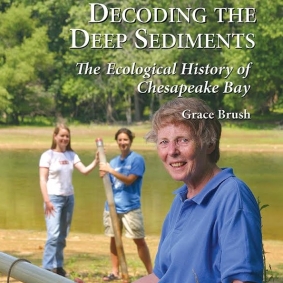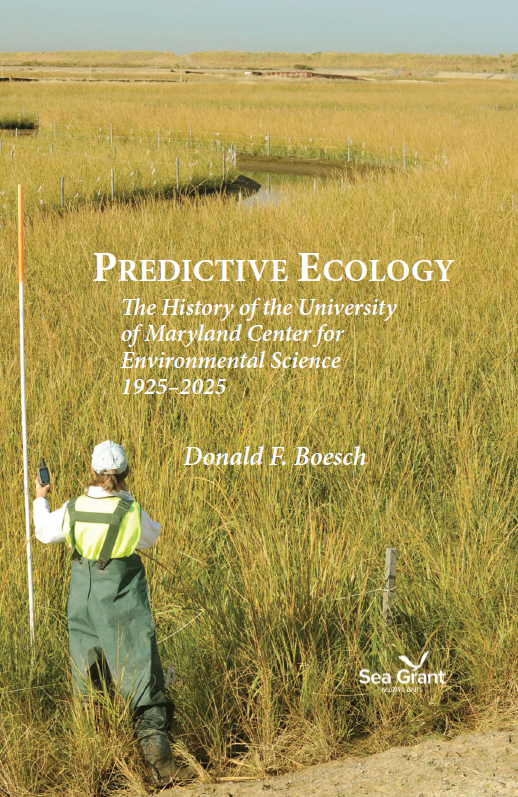Knauss legislative fellowships in Congress help build careers — and they're fun and educational. See our video and fact sheet for details.
The Bay's History Told Through Deep Sediments: A New Book by Grace Brush

The sediments of Chesapeake Bay harbor a record of the estuary's ecology, from its “natural functioning” thousands of years before European colonization through post-Colonial settlement and the continuing forest clearance throughout the watershed. Translating that record into a history of ecological change has been the focus of Grace Brush’s paleoecological research at the Johns Hopkins University for more than 30 years.
Brush describes her findings and how she did the research in a new book published by Maryland Sea Grant, Decoding the Deep Sediments: The Ecological History of Chesapeake Bay.
In it she explains the nature of the studies that she and her colleagues have conducted and how they analyzed hundreds of core samples they took from the Bay's bottom. Their work has demonstrated how the cutting down of trees and large-scale land use changes have affected the Bay’s ecosystem in massive runoff of sediment and nutrients, all of which have contributed to the decline of water quality. A major effect has been the shift from a Bay ecosystem once dominated by benthic processes to one now dominated by pelagic processes.
Brush, a winner of the Mathias Medal for excellence in Chesapeake Bay scholarship and public service, also writes about how she came to do aquatic research in the first place and about the difficult challenges she and women scientists of her time had to deal with. As Maryland Sea Grant Director Fredrika Moser writes in the foreword, Grace Brush has an important story to tell: “I think all readers will admire her remarkable story, her fortitude, and, not least of all, the students she has attracted to continue this work.
Decoding the Deep Sediments can be ordered from Maryland Sea Grant's Bookstore.
This book is the fifth in Maryland Sea Grant’s Chesapeake Perspectives series, in which researchers, scholars, and other thinkers share their insights into the unique culture and ecology of the Chesapeake Bay. Other books in this series include the following (also available for purchase through the Bookstore):
- Managing the Chesapeake’s Fisheries: A Work in Progress, by Edward D. Houde
- Inquiry in a Culture of Consensus: Science and Management for the Chesapeake Bay, by William Matuszeski
- Heritage Matters: Heritage, Culture, History, and Chesapeake Bay, by Erve Chambers
- Chesapeake Environmentalism: Rethinking Culture to Strengthen Restoration and Resource Management, by Michael Paolisso




